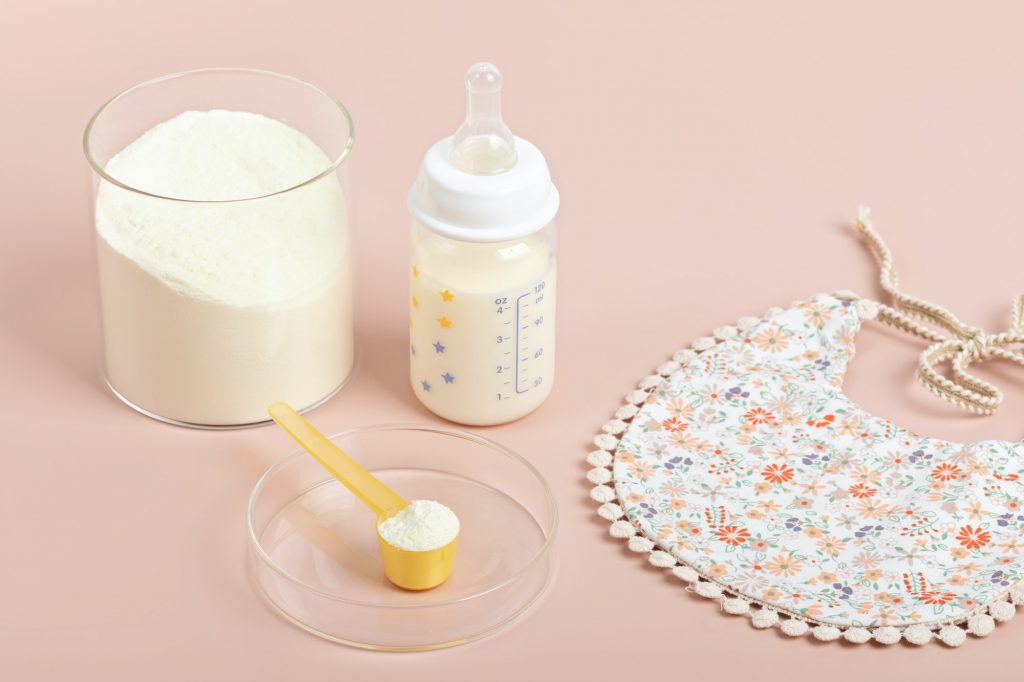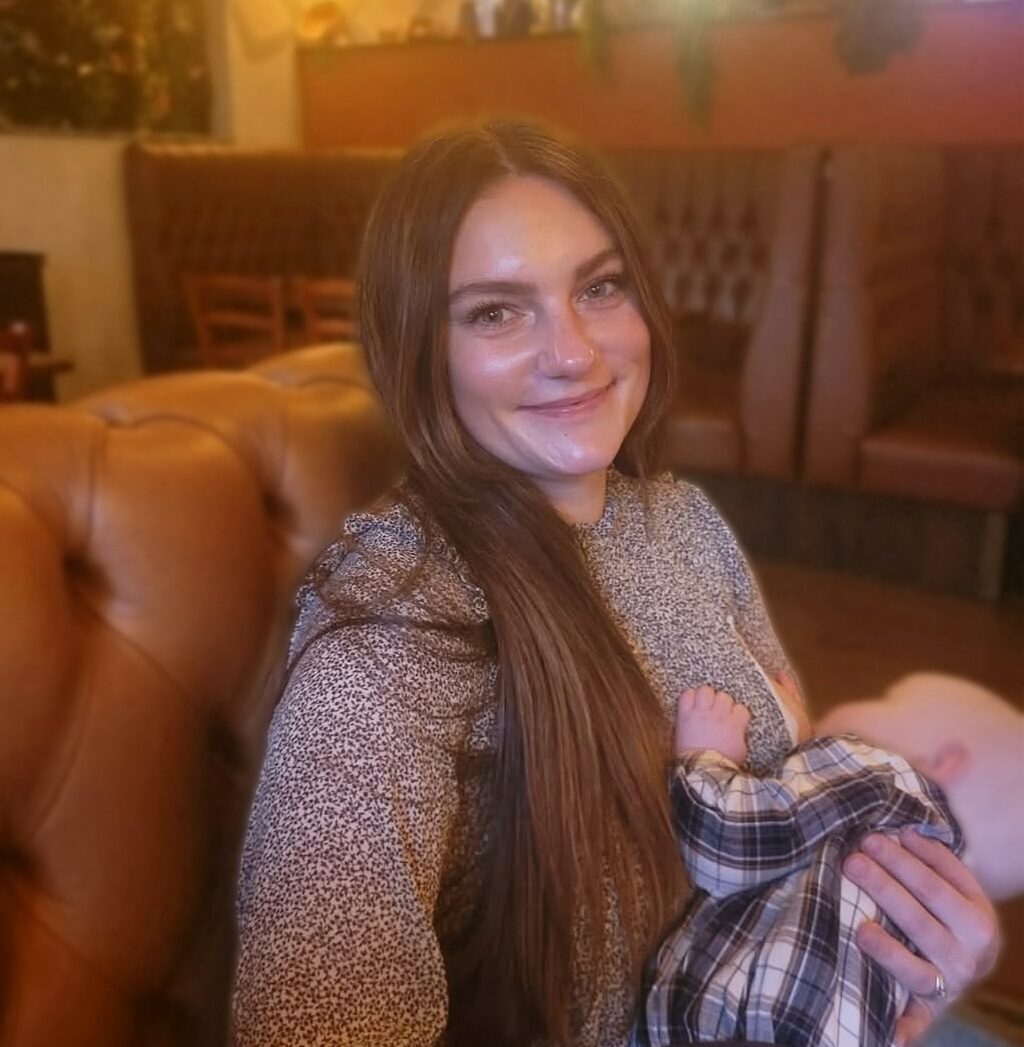One of the driving forces behind the success of the IBCLC as a social media “health-fluencer” is the perceived authenticity we bring to the table. Unlike in a clinic setting, in the digital space, we can present a more relatable and unfiltered version of ourselves, especially if we are also moms who have #beenthere!
This authenticity resonates with our audience largely made up of millennial mothers, craving genuine connections at one of the most vulnerable times in their lives.
Infant formula companies want to use our power as “health-influencers”
But we we are professionals first and influencers second. And this is where things have been getting a little mixed up lately. Infant formula companies have long exerted undue influence on the infant feeding conversation and now see our power as “health-fluencers” and our unique ability to connect with our audiences. And lately they have forged partnerships with some of our own because we are easy, inexpensive marketing for them. They’re willing to throw scraps to us in exchange for holding up a can of their product, whether we actually used it or not; to give us a platform to promote our books, and to get our name out there.
They aren’t only willing to do this, they are happy to. After all, if there are more “formula friendly” IBCLCs, there is more formula being purchased.

Infant formula companies have long exerted undue influence on the infant feeding conversation
It is not infant formula that is the problem
Let me be clear, infant formula itself is not the problem, as it is indispensable for specific demographics, providing vital nutrition for babies who are not breastfed. But as an essential product, playing a crucial role in sustaining life, infant formula shouldn’t even need to be marketed; hence why the World Health Organization International Code of Marketing of Breast milk Substitutes (The Code) was developed.
As IBCLCs, we must be educated on formula feeding so that we can support all families, but it is a fallacy to posit that we need to align ourselves with infant formula companies to do so. We don’t need their collaboration to prevent us from “operating in an information vacuum” or to dismantle racism or ableism. In fact, I would argue these collaborations actually perpetuate these forms of oppression.
As IBCLCs, we must be educated on formula feeding so that we can support all families, but it is a fallacy to posit that we need to align ourselves with infant formula companies to do so.
The oppressive history of formula marketing
A healthcare professionals’ endorsement of an infant formula brand, paid or not, explicit or implied, pretends that breastfeeding or formula feeding is just a choice that parents make and that the systems of oppression and corporate influence have been dismantled. It is when we turn a blind eye to the spirit in which the Code was developed that we are conveniently allowed to stop seeing formula marketing as the primary problem and ignore its oppressive history. It is “code-blind.” And it is this blindness that allows us to treat free choice in infant feeding as a current reality rather than an aspiration that we can only hope to see in our lifetime. When this happens, our minds then seek other explanations like “shaming by the ‘breast is best’ agenda” for dismal breastfeeding rates, poor maternal mental health, the “mommy wars” and now the discord among our own on social media.
But remember, if infant formula companies are not to blame, then women’s failure to achieve their breastfeeding goals must mean there is something wrong with them, not with the social systems that somehow always benefit corporate interests over health. We can’t have it both ways —we can’t criticize the system and then be part of it; blame it for why women struggle so much and then put our blinders on when it might benefit us. In doing this we are ignoring the oppressive, unethical, and undue influence the industry has had on the infant feeding discourse, and we all suffer enormously. The resulting disastrous condition which menaces us is one we would rather not be reminded of but for which we, as professionals bear an inescapable responsibility.

We can’t have it both ways —we can’t criticize the system and then be part of it
(You can read more about the history of formula marketing and the WHO Code here and here.)
Be aware of pseudo-support from infant formula companies
Picture the new mother, you know exactly who she is (maybe you were her once upon a time), all pumped full of optimism and Body Armor, cloaked in naivety; her prenatal education consisting largely of TikTok videos. She has chosen to breastfeed but at the first sign of trouble, she is inundated with messages that “fed is best” and if she’s struggling with her mental health she should “put herself first.” It’s not hard to convince her, after all, she’s in the eye of the most intense visceral shitstorm of her life and is not to blame. But this pseudo-support from the infant formula company and those who shill for them is disingenuous at best and dangerous at worst.
If we are committed to first not harm, we must stay alert to the fact that the infant formula companies are not our friends; nor do they share our commitments. They don’t care about the WHO Code or our professional code of conduct because they don’t have to. That is our job while theirs is to turn a profit. If an infant formula company invites a healthcare professional to the proverbial table, it’s not to create more dialogue and support more families. It is not because they value the expertise of an IBCLC, it’s because they want to exploit it.
Infant formula companies only want us to impact their bottom line
The only reason the infant formula companies want us is because we will impact their bottom line. We are the product…we are the ad. Therefore, not only do these collaborations compromise our ethics, but they also send mixed messages and put women and babies at risk. And while it might make you appear more inclusive of feeding choices on social media, this is nothing more than virtue signaling.

The only reason the infant formula companies want us is because we will impact their bottom line.
If we truly have a commitment to exercise independent judgment and avoid conflicts of interest (1), we can no longer turn a blind eye to the Code and the responsibility we have to uphold it. If our desire is to provide culturally appropriate care, without personal bias, informed by the best available evidence (1), we must reaffirm our commitment and dedication to our code of professional conduct and the principles outlined in the WHO Code.
Acknowledging the “code blind epidemic”
It is on us individually to actively do the work to be code-compliant rather than “code-blind”. It is understood that all IBCLCs should refuse to take freebies or samples from formula companies; but we are not absolved of our professional responsibility during online interactions. Online collaborations, guest appearances on podcasts, or sponsored content, disclosed or not, while technically not a violation of the Code, are examples of being “code blind”.
By upholding the highest standards of professional conduct and acknowledging this “code blindness” epidemic, we strengthen our collective impact and increase the likelihood that our profession will end up on the right side of history. A history which is unfolding on the screens in front of us.
It is understood that all IBCLCs should refuse to take freebies or samples from formula companies; but we are not absolved of our professional responsibility during online interactions.
1. Code of Professional conduct. (2022, August 17). IBLCE. https://iblce.org/resources/ disciplinary%20-procedures%20/


















